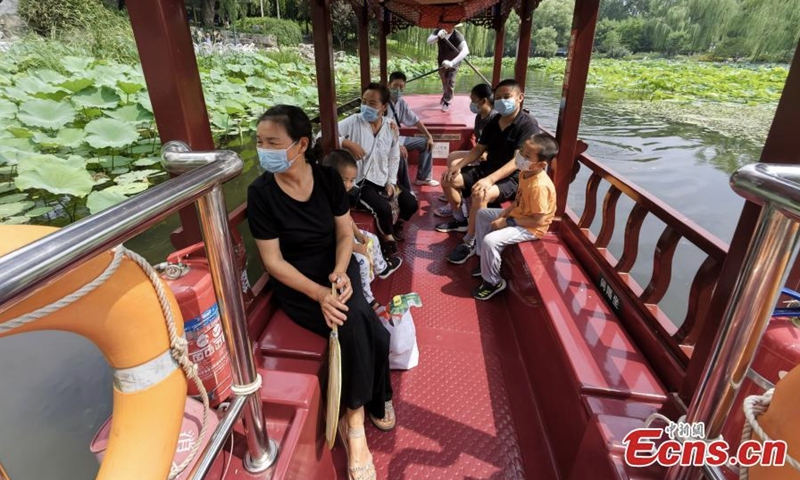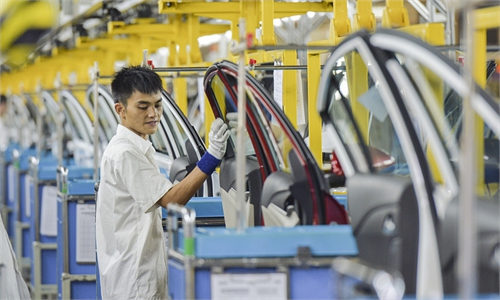China’s services sector activities in August continue to recover amid COVID-19, heat waves: private survey

Tourists take boat to appreciate lotus flowers at Zizhuyuan (Purple Bamboo)Park in Beijing, Aug. 17, 2022. Visitors can enjoy a close look at the flowers by riding a boat in the ponds during the summer season. (Photo: China News Service/Zhao Jun)
China’s services sector activities in August continued to rebound, though the growth slowed down due to the sporadic flare-ups of COVID-19 epidemic, according to a private survey on Monday.
The Caixin services purchasing managers' index (PMI) recorded 55.0 in August, 0.5 percentage points lower than in July and the second highest since June 2021, indicating that despite the slight decrease, the country’s services sector continued the strong recovery trend since June this year.
A reading above 50 indicates expansion, while a reading below 50 reflects contraction.
The sub-indices of both new orders and new export orders for the services sector in August fell slightly, with some surveyed enterprises noting the negative impact of the epidemic on sales. In addition, the recurring epidemic and travel restrictions in some areas caused disturbances to exports.
Business confidence in the services sector continued to improve, with the business expectations index edging up to a new high since December 2021. Companies generally expected market conditions and customer demand to continue to improve as the outbreak can fully be brought under control, which will benefit their expansion plans and new product launches.
Despite improvement between supply and demand in the services sector, the employment situation in August still faced pressure, with the index continuing to be below the 50-point mark, mainly due to employees leaving due to the epidemic and firms not filling vacancies in a timely manner.
In August, costs for labor, raw materials, food and marketing all rose, leading to the cost burden on the services sector. Enterprises had to repair the impact of the previous months’ epidemic through promotions, resulting in the sales price index falling to its lowest in nearly four months.
The main negative factors affecting the economy in August were extreme high temperatures and epidemic flare-ups in some areas, Wang Zhe, a senior economist at Caixin Insight Group, said, noting that the foundation of economic recovery is not yet solid with downward pressure.
The central bank recently lowered the policy interest rate to reduce corporate and personal financing costs, but the effectiveness of monetary policy still depends on the cultivation of market players' confidence in the future of the economy, Wang said.
In addition, as the job market is sluggish and the consumer market shrank affected by unfavorable factors such as epidemic and natural disasters, subsidies and assistance for the needy and low-income groups should be further strengthened, the economist noted.
Global Times


